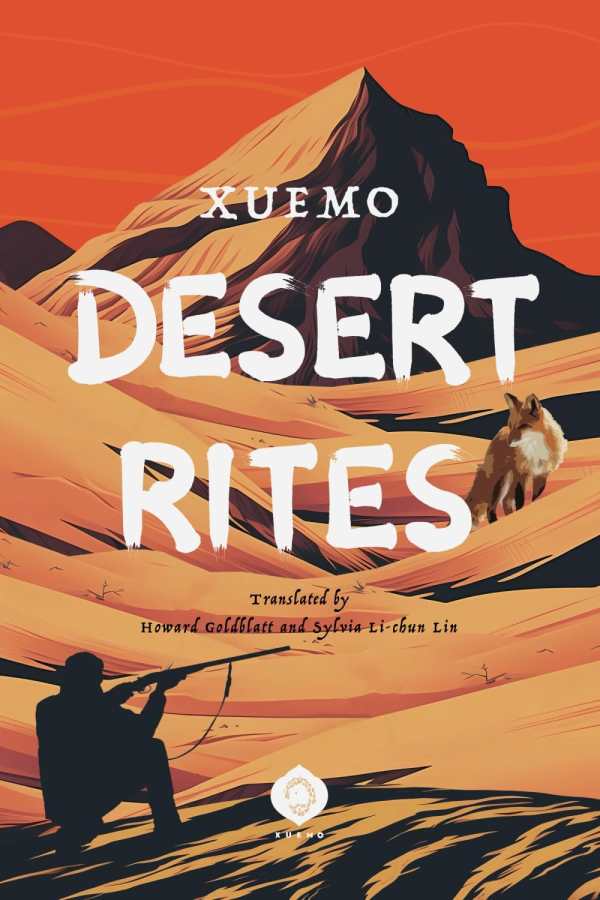Desert Rites
The subsistence existences of those who contend with harsh environments and harsher government policies are the focus of the illuminating novel Desert Rites.
In Xuemo’s historical novel Desert Rites, Chinese villagers struggle against crushing poverty and government extortion.
Laoshun and his wife spend their lives doing hard farm labor, eking out an existence for their four children. Laoshun also trains hawks to hunt rabbits as an additional source of food and income. As the communist government requisitions grain and demands endless fees and taxes, he and others in his village struggle to get by.
Laoshun’s children have their own problems too. Hantou, his obedient older son, is unable to consummate his marriage with beautiful, lively Ying’er. His middle son, Mengzi, gambles and has a scandalous affair with a married woman. His youngest son, Lingguan, the lone high school graduate, fails his college entrance exam, learns to hunt foxes in the desert, and has an affair with Ying’er. Laoshun’s daughter, Lanlan, lives with her abusive husband’s family. The problems increase when Hantou falls ill and cannot afford medical care, setting a tragic course of events into motion.
The setting is enlivened by descriptions of the desert as both a life-sustaining force and a harsh and dangerous place with the power to destroy human beings:
It was a wind unique to the desert, scorching hot, raging mad, and wreaking havoc. Sand flew everywhere, the small village shook, and the sun shrank back to hide in mid sky where it was a pinpoint of dim light.
Elsewhere, people hold ceremonies to solidify their connections to the spirit world, appealing to the spirits to fix their problems.
The focus alternates between the family members and the lives of other villagers. Included in its scope are the wise fox hunter who trains Lingguan, a friend of Laoshun’s who has a deranged son, and couples subject to inhumane family planning policies. Still, the various strands intersect well, forming a cohesive whole.
The characters’ inner lives are well fleshed out, and the novel does an able job of highlighting women’s suffering and the shortcomings of a society that considers women lesser. However, Laoshun and others prove somewhat passive in their roles, taking only “what Heaven doles out”; their acceptance of their situations robs the story of some dynamism. While they rail against injustice, they do not act to effect change (with a few exceptions). Moreover, numerous scenes are extended beyond reason and slow the book’s pace, as with belabored descriptions of fox hunting and hawk training.
In the stark historical novel Desert Rites, a family’s valiant attempts to support one another face overwhelming odds; they endure oppression and loss in an unforgiving environment.
Reviewed by
Yelena Furman
Disclosure: This article is not an endorsement, but a review. The publisher of this book provided free copies of the book and paid a small fee to have their book reviewed by a professional reviewer. Foreword Reviews and Clarion Reviews make no guarantee that the publisher will receive a positive review. Foreword Magazine, Inc. is disclosing this in accordance with the Federal Trade Commission’s 16 CFR, Part 255.

